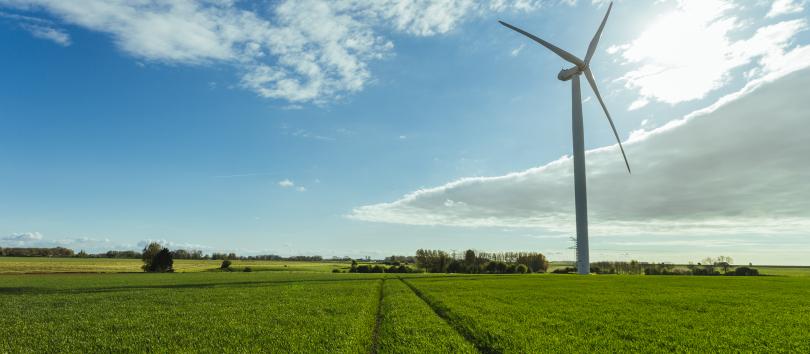
Ready for the green transition?
Being the first climate-neutral continent is the ambitious goal the European Union has set itself within its Green Deal. Launched in December 2019, together with a zero carbon emissions target by 2050, the EU is seeking to ensure economic growth, respect for the earth’s resources, and the health and well-being of citizens.
Moreover, the EU’s Green Deal has worldwide outreach with climate change, environmental degradation and loss of biodiversity as key components of its external relations and assistance.
In the EU’s 2021-2027 budget, the Neighbourhood, Development and International Cooperation Instrument (NDICI), which has a budget of €79.5 billion, a 25% spending target has been set on climate change, going hand in hand with all targets, specifically human development and migration with targets of 20% and 10%, respectively. Indeed, the EU’s most recent strategy, the Global Gateway, highlights the interconnectivity of the most pressing issues of our time and aims to boost smart, clean and secure links in digital, energy and transport sectors and to strengthen health, education and research systems across the world dedicating a budget of EUR 300 billion for investment.
The ETF and the green transition
The ETF’s work is devised and delivered in the context of the European Union’s policies and the EU's external relations priorities to support Agenda 2030 and the United Nation's Sustainable Development Goals (SDGs). We are supporting partner countries in the EU’s neighbouring regions to prepare for the green transition through the reform of human capital development systems to drive the shift towards sustainable, clean, carbon-neutral circular economies and just and fair societies.
Understanding skills and supporting responsive education and training systems
Our work includes the mapping and anticipation of changing skills in partner countries due to the green transition and, through regular monitoring exercises, understanding the preparedness of education and training systems, particularly vocational training systems, to give citizens the necessary skills.
Specific scientific and technical green skills for certain occupations will be required, but not only. Every individual, at all ages and stages in life, will need transversal skills and competences and general environmental awareness to be able to live and thrive in the green economy.
The ETF also undertakes targeted country studies such as pilot reviews in eight countries in 2021 (Algeria, Azerbaijan, Georgia, Morocco, North Macedonia, Serbia, Ukraine and Uzbekistan) and sectoral studies to better inform our policy advice and country interventions, for example, studies on agri-tech, agri-food, automotive, and energy sectors in Israel, Morocco, Turkey and Albania respectively.
Supporting enterprise skills development
We are working in partnership with other organisations, namely the EBRD and UNIDO, to support business, particularly small businesses to have the relevant skills for the green transition. To enable enterprise skills development we engage intermediaries (e.g. sector skills councils, business associations, industry associations, chambers) as well as business networks at national and international level.
National and international networks
We build and support networks at multiple levels to ensure the creation of new knowledge and the building of expertise. The ETF Network for Excellence supports centres of vocational excellence (CoVES) in the greening of their vocational and education training provision. The ETF Skills Lab Network of Experts which brings together experts and researchers across countries and institutions to develop and disseminate labour market research on skills anticipation and matching. (More information about its most recent event in February 2022 on the green transition can be found here.) And, the ETF’s recently launched GLAD network supports partnerships and enhances the contribution of multiple stakeholders to the governance of vocational education and training, skills development and lifelong learning.
Interface with other policy areas
The green transition is a cross-cutting policy issue that needs to properly interface with other policy areas such as youth, migration and gender equality. The ETF works to ensure inclusive skills development and employment policies for greening by building partnerships across the policy divide and ensuring a multiple stakeholder approach to manage change, including governments, businesses, social partners, civil society, research institutions, communities and education and training providers.
Tools for competence development
We offer tools to support reform efforts including the EU’s Greencomp, the European sustainability competence framework, which is designed to support education and training programmes for lifelong learning at all ages, stages and settings (formal, non-formal and informal); and, the ETF’s READY model (Reference model for Educators' Activities and Development in the 21st-century) which supports the professional development of educators including those competences required for the green transition.
ETF Green Skills Award
Following on from the highly successful awards in 2021 (2021 finalists), in February of this year, the ETF launched the second call for good practice examples on the role of skills in empowering the green transition. By profiling outstanding success stories we give inspiration for education and training policy-makers and practitioners in the EU neighbourhood and beyond.
This year, the ETF award will be presented as one of the VET Excellence Awards at the 2022 European Vocational Skills Week, 16 – 20 May, organised by the European Commission which has as its theme Vocational Education and Training and the Green Transition.
Events
We host regular targeted events to discuss the latest developments at both thematic and country level on the challenges and opportunities for skills development to ensure individual, institutional and societal readiness for the green transition.
The next event on ‘skills for the energy transition’, jointly developed by the ETF, UNIDO and Schneider Electric, will take place on 13 May 2022. You can follow the event live here from 11.00 to 12.30 CEST.
Did you like this article? If you would like to be notified when new content like this is published, subscribe to receive our email alerts.